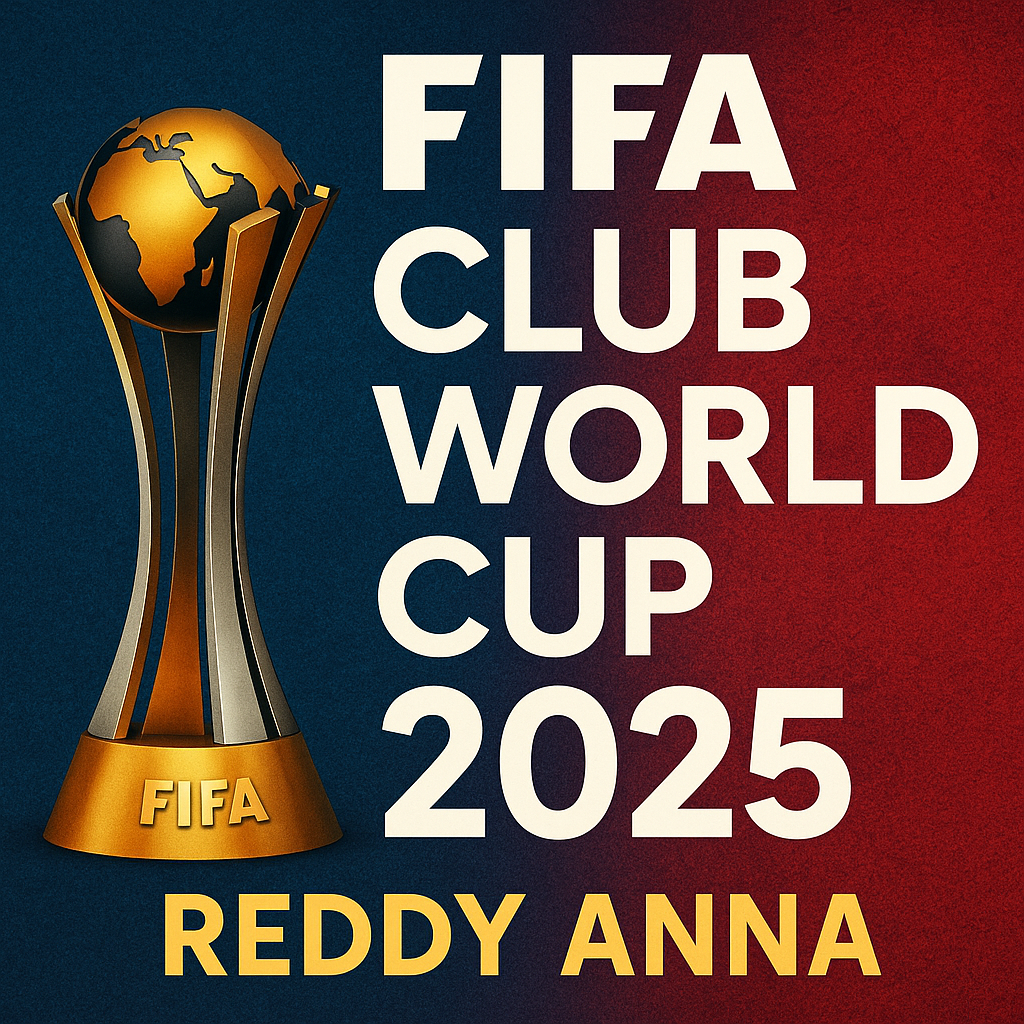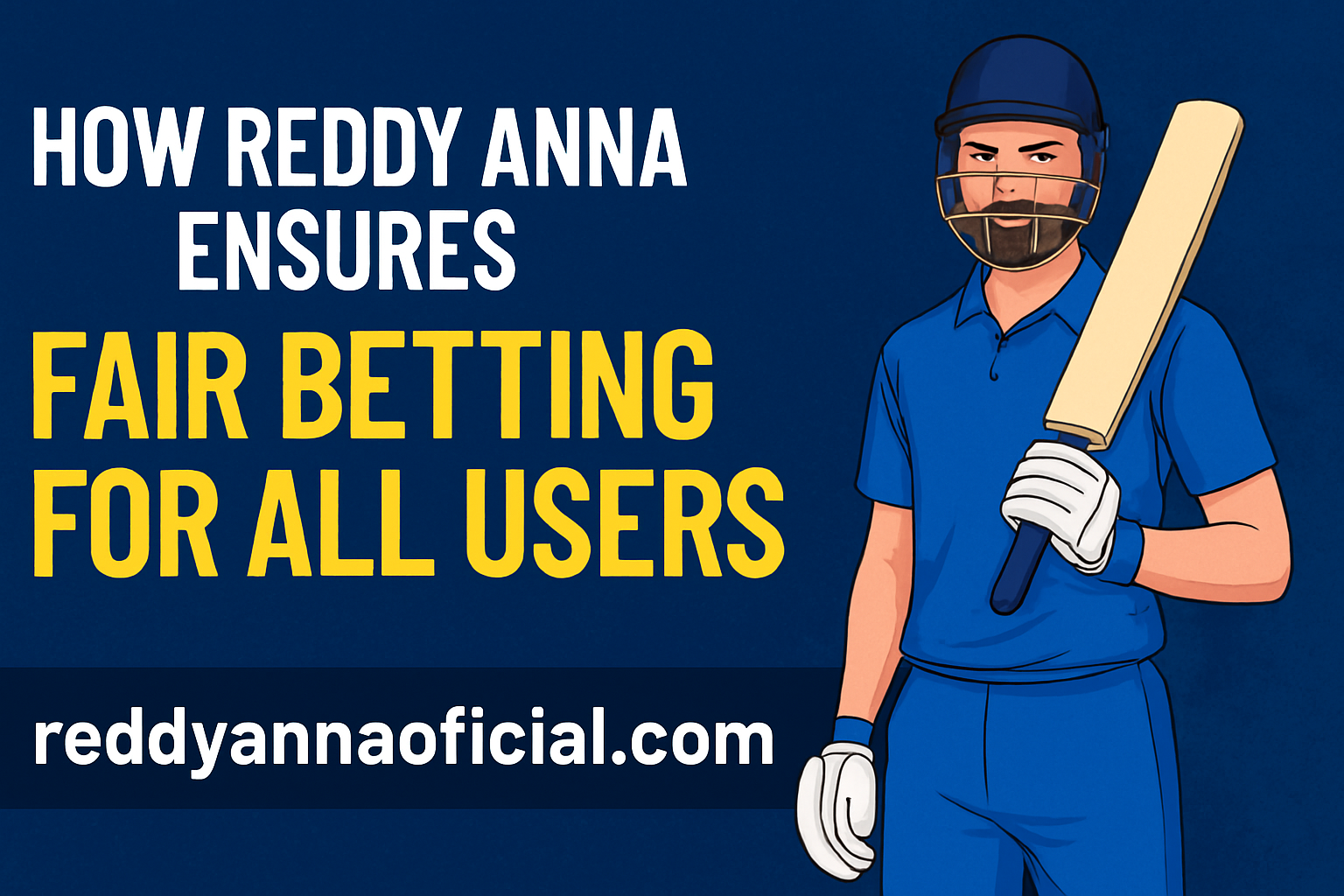Introduction
The 2025 FIFA Club World Cup marked a seismic shift in club football — expanding from seven to 32 teams, introducing group stages, and offering a staggering $1 billion prize pool.FIFA Club World Cup 2025: Reddy Anna This was also the first edition under the new quadrennial model, hosted in the United States from June 14 to July 13, 2025.For bettors, it meant more matches, more markets, and higher stakes — plus new patterns to analyze.
Tournament Format & Structure
Group Stage: 8 groups of 4, single round‑robin. Top 2 advance to Round of 16.
Knockout Phase: Round of 16 → quarter‑finals → semi‑finals → final. No third‑place playoff.
63 total matches, played across 12 venues in 11 U.S. cities, culminating at MetLife Stadium in New Jersey.
Qualified Teams & Group Placements
Confederation Slots
Europe: 12 teams via UEFA Champions League winners and coefficient ranking
South America: 6 via Copa Libertadores winners and ranking spots
CONCACAF: 4 (including host Inter Miami)
Asia, Africa: 4 each
Oceania: Auckland City (one slot)
Notable Entrants
European clubs: Chelsea, Real Madrid, Manchester City, PSG, Bayern Munich, Inter Milan, Juventus, Atlético Madrid, Porto, Benfica, Dortmund, Salzburg
South American powerhouses: Palmeiras, Flamengo, Fluminense, Botafogo, River Plate, Boca Juniors
Host/MLS representation included Inter Miami, controversially selected over MLS Cup winners to ensure Lionel Messi participated.
FIFA Club World Cup 2025: Reddy Anna Other continental champions and qualifiers included: Al Ahly, Wydad, Urawa, Al Hilal, Mamelodi Sundowns, LAFC, Seattle Sounders, Pachuca, Auckland City
Group Highlights
Group D: Chelsea, Flamengo, Espérance, LAFC
Group G: Manchester City, Juventus, Wydad, Al Ain
Group B: PSG, Atletico, Botafogo, Seattle
Group H: Real Madrid, Al‑Hilal, Pachuca, Salzburg
Financial Stakes & Incentives
Prize money topped at $125 million for the champion; all participating clubs received roughly $40 million minimum.
Total tournament revenue exceeded €2 billion; clubs earned substantial payouts. Chelsea and PSG both approached €100 million in earnings, while Bayern Munich earned about €50 million despite a quarter-final exit.
Final Outcome & Key Performers
Chelsea defeated PSG 3–0 in the final on July 13, 2025, at MetLife Stadium, claiming their second Club World Cup title and first in the expanded era.
Cole Palmer was dominant in the final—scoring twice and assisting the third—winning Player of the Match and the Golden Ball for best player of the tournament.
João Pedro, a £60 million signing from Brighton, scored three goals in the knockout stages and emerged as a star performer.
Robert Sánchez (Chelsea) earned best goalkeeper, and Désiré Doué (PSG) was named the best young player.
Betting Insights: What Bettors Should Expect
- More Matches, More Data
With 63 games instead of the previous 20, bettors had significantly more opportunities — across match results, goal markets, player props, and team stats. - Value in Group Stage
The early rounds saw unexpected results. Teams like LAFC, River Plate, and Fluminense often delivered value upsets or covered spreads against favored European sides. - Fatigue & Squad Rotation
The U.S. summer climate, travel between cities, and condensed fixtures forced coaches to rotate squads. Bettors who accounted for team depth and possible rest days had an edge. - Star Performance Specials
High-profile players — Palmer, João Pedro, Mbappé, Messi — were central in prop markets (e.g., first goal, top scorer). Cole Palmer’s final performance exemplified how one player can turn markets. - Live Betting Opportunity
Several knockout matches saw swings late in the game. In-play markets thrived, especially in second halves when fresh legs and tactical changes influenced outcomes. - Correlations with Physical Conditions
Travel fatigue, altitude, and climate shifts affected player output and team cohesion. This influenced booking markets (yellow/red cards) and unders in expected high-scoring matches. - Monetary Motivation
With enormous financial rewards, clubs were more motivated than in typical preseason tournaments. Even favorites played to win — Chelsea’s strong lineup throughout was a signal to bettors.
Key Betting Strategies to Consider
Strategy Why It Works
Group stage upsets Lesser-known teams played freely, delivering value at long odds.
Props on emerging stars Rising players like Palmer and João Pedro outperformed expectations.
Attacking overs markets European giants regularly dominated smaller teams.
Live betting in knockouts Tactical shifts created real-time opportunities.
Corner/booking markets More physical matches led to volatile cards and corner totals.
Potential Risks & How to Mitigate
Squad rotation: Avoid early prop bets unless lineups are confirmed.
Fatigue: Avoid betting heavily on teams with travel disadvantage.
External distractions: Controversies, such as the Inter Miami selection or off-field drama, can influence performance unpredictably.
Injury risks: Key players dropped out mid-tournament — Bayern’s Jamal Musiala, for instance, left bettors hanging.
Looking Ahead: What Bettors Should Watch for in Future Editions
Frequency of the tournament: FIFA’s decision to keep it quadrennial may change if pressure from clubs increases.
Format changes: Adjustments to group-stage formats or host nation slots could alter competition balance.
Market maturity: As betting models catch up with this expanded tournament, lines will tighten — early insight will be key.
Streaming availability: Widespread free access will create more volume in live betting pools.
Final Thoughts
The 2025 edition of the Club World Cup showed that an expanded format doesn’t just add matches — it creates a fresh ecosystem of betting value.
Smart bettors gained an edge by:
Exploiting underdog value in group stages
Betting player props on breakout stars
Using live betting to respond to momentum and substitutions
Accounting for travel and fatigue when evaluating matchups
As the tournament evolves, so too will the betting landscape. Stay informed, think strategically, and remember: value lies where the market underestimates chaos.



